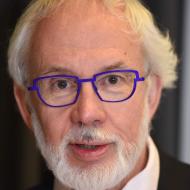On 19 August 2019, America’s most influential group of business leaders, the Business Roundtable (BRT), released a statement re-defining the purpose of a corporation.
Described as 'a modern standard for corporate responsibility', the statement acknowledges publicly that while individual companies serve their own corporate purpose, they share a fundamental commitment to all their stakeholders.
It details the group’s commitment to delivering value to customers, investing in employees, dealing fairly with suppliers, supporting communities and the environment, as well as creating long-term value for shareholders.
Why is this significant?
The fact that 181 CEOs from America’s largest companies have signed up to this principle should make all boards sit up and take notice.
Why? Primarily, because it illustrates a major shift in mainstream business thinking away from the primacy of shareholders towards the needs of wider society.
The pressure for companies to behave more responsibly has been building for some time. The lack of trust engendered by the financial crisis, climate change activism, calls from investors for better ESG reporting and the different career motivations of Gen Z have all contributed to a new mood about the role of business in society.
‘In recent decades, the prevailing school of thought has been Milton Friedman’s “shareholders-come-first” approach,’ says Robert G. Eccles, Visiting Professor of Management Practice at Saïd Business School, University of Oxford. ‘This declaration by the BRT shows big business stepping away from that towards a new definition of capitalism.’

The need for action
Professor Eccles has been leading a campaign for companies to issue a statement of purpose, to show that they are serious about ‘profitably achieving a solution for society’.
He first voiced this idea as an annual board 'Statement of Significant Audiences and Materiality' in his book: The Integrated Reporting Movement: Meaning, Momentum, Motives and Materiality (2014), co-authored with Michael P. Krzus.
More recently he has been collaborating with investment group, Hermes EOS, and Berkeley Law, to call for every listed company (and as many private ones as possible) to publish a ‘statement of purpose’ by 2025.
The group believes that such a statement will provide a foundation for better, more transparent, socially responsible corporate governance to guide decision-making by management.
Six elements of an effective statement of purpose
Professor Eccles and Timothy Youmans, Lead – North America at Hermes Equity Ownership Services (Hermes EOS), have created a guidance document for boards which identifies six key elements that make up an effective statement of purpose. They are:
- Short – a statement of purpose needs to be no longer than a page or two
- Led from the top – it needs to come from the company’s directors to show that it is being taken seriously at the highest levels
- Concise – the statement should articulate clearly the company’s purpose and how to match commercial success with social accountability and responsibility
- Specific – it should identify the key stakeholders that are most critical to long-term value creation and sustainability within the company’s purpose
- Time-bound – it should identify the time frames the company uses in evaluating its strategy and long-term capital allocation choices
- Lead to action – a statement of purpose is without meaning if it is not followed by action and reporting on how purpose is being achieved
‘Directors will need to think and act differently than before,’ continues Professor Eccles. ‘Creating a statement of purpose requires them to agree on and be open about the company’s most significant stakeholders. And it also forces a Board to be very clear and transparent about its time horizons.’
Read more about Robert G Eccles research on how to create sustainable capital markets at www.roberteccles.com.




